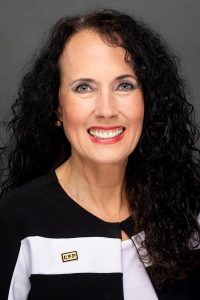 https://careers.edwardjones.com/wp-content/uploads/sites/3657/2025/12/Building-a-Successful-High-Net-Worth-thumbnail.png
189
348
st-saml-edwardjones_p229094
https://edwardjones.site.findly.com/wp-content/uploads/sites/3657/2025/10/download-1.svg
st-saml-edwardjones_p2290942025-12-11 18:05:532025-12-11 19:08:39Building a successful high net worth practice with support from Edward Jones
https://careers.edwardjones.com/wp-content/uploads/sites/3657/2025/12/Building-a-Successful-High-Net-Worth-thumbnail.png
189
348
st-saml-edwardjones_p229094
https://edwardjones.site.findly.com/wp-content/uploads/sites/3657/2025/10/download-1.svg
st-saml-edwardjones_p2290942025-12-11 18:05:532025-12-11 19:08:39Building a successful high net worth practice with support from Edward JonesBecoming a Financial Advisor at 40+
The Financial Advisor Opportunity:
Becoming a Financial Advisor at 40+
Share this post:

I worked in nursing for more than 20 years when I decided to switch careers to become a financial advisor. I was in my 40s, with an established career, a master’s degree and a healthy salary. But the career I had found so exciting and rewarding for decades wasn’t as fulfilling for me anymore.

I hadn’t thought about changing careers, much less switching fields completely, but after talking with my financial advisor and learning more about the career, I took a leap of faith. I felt this could be right for me.
The flexibility, unlimited earning potential and opportunity to help other people meet their goals were immediately intriguing to me. So was the fact that I would feel a sense of ownership for the success of my career and for seeing my clients and community succeed too.
As a financial advisor, you really get to know the people, families and businesses you work with as you help them meet their financial goals. We build relationships with our clients and learn who and what is most important to them to develop a personalized financial strategy.
Considerations in making a career change to a financial advisor
I’m sure many people wonder why anyone would leave a career and go into something almost completely different after the age of 40. After decades in the same field, it’s common to feel burnt out and want to find a new challenge. There’s also the opportunity to increase earning potential, which is especially enticing as we grow older. Some people find that they are looking for more flexibility to spend more time with family or on hobbies. As a financial advisor, I have more control over how, when and where I get my work done than I did in my nursing career. And I’m still helping people.
These factors — earning potential, flexibility, helping people and community — are on the minds of people of all ages. But as I looked to change careers in my 40s, they were especially important.
Personally, my career in nursing was no longer rewarding for me. I knew I wanted to continue to help people and work with my community, but I needed a new challenge to re-energize me. I was open to starting over and beginning again in a new industry. If you are considering a career change, you will have to weigh your appetite for this.
To be a financial advisor there are certifications and licenses to obtain. This means that you have to study to pass certification exams. Of course, there’s learning a new sector, too. You will be bringing your skillset into a new field with new ways to use those skills. I was excited to see how I could use my skills from nursing as a financial advisor to help people in a different way. If you are considering a career switch, then you will need to take stock of your skills and determine if you are willing to adapt them to a new field.
Before taking the plunge into a new career in a different industry, you will have your own considerations. After I thought about these and the advantages that a new challenge could bring to my life, I knew that becoming a financial advisor was the right choice for me.
Characteristics of financial advisors
While I knew I was bringing valuable skills from nursing into my new role as a financial advisor, I was surprised at precisely what skills bubbled to the surface and have helped me be successful. First was my sense of observation. When I was a nurse, I was constantly assessing and evaluating situations, then applying the best course of action. This ability to observe, assess and recommend has helped me immensely when I’m working with my clients and creating a financial strategy for them.
Communication is critical in healthcare. Being able to succinctly share information with colleagues and patients is so important. I have found these communication skills I honed over the years as a nurse have translated well in my second career as a financial advisor. Whether it’s working with clients or my coworkers or others in the community, good communication is invaluable.
As a nurse, I also learned how to analyze data and use it to apply the best care. This skill is key in being a financial advisor, too. I am regularly analyzing information and determining how to best use it to the benefit of my clients. Even the process I use is similar to the nursing process — I’m just using financial data instead of medical data.
Financial advisors spend a lot of time listening to the people, families, and businesses we work with. It’s important to be empathetic toward your clients as you work with them. We also need to make decisions and be confident in those decisions. Being motivated to help your clients succeed is critical, too, and will help you succeed as well. Having 20 years of previous work experience I knew what I was capable of and was more self-aware of my abilities and how they could translate to the financial industry. This experience and confidence I had built through a previously successful career in healthcare were all helpful as I worked to become a financial advisor
Tips to become a financial advisor after 40
Before you can open your doors and start working with clients, financial advisors must pass several exams and be licensed. To get started in the right direction with this preparation, I have the following tips:
- Be Open to Learning: You are moving into a new industry, so you will have a lot to learn. It’s important to think about how you learn best and consider how you can set yourself up for success as you learn your new industry and your new role.
- Prepare to Study: There are exams that must be passed before you can be a financial advisor, and they aren’t easy. It takes dedication to studying and preparing for these exams. Make sure that you have the time to prepare. It’s also helpful to reflect on the best system for you to learn and remember new material and implement it.
- Ask Questions: As a new financial advisor, you will have questions. Don’t be afraid to ask them. Even if you need to seek out someone to help you figure out the answers, do so. Now is the time to make sure you know the information so you can pass your exams and become a successful financial advisor.
When it came to navigating a start in a new industry, I was grateful that I had decided to become an Edward Jones financial advisor. Edward Jones has a solid reputation as a company because of the great service they provide to their clients and the support they give team members. I have personally found this to be true from day one as they have supported me and provided me with what I need to start a successful career.
As I mentioned, there are exams to prepare for and pass. During this period, Edward Jones provides new financial advisors hourly compensation so they can focus on your development, plus resources and tools to help you successfully earn your certifications and licenses.
To be a financial advisor there are exams and licenses required. These include:
- The General Securities Registered Representative Examination (Securities Industry Essentials SIE + Series 7)
- The Uniform Combined State Law Examination (Series 66)
- State insurance licensing requirements
Edward Jones also gives new financial advisors the benefit of business-building training and workshops. These sessions were invaluable in helping make sure I was confident in my ability to be a great financial advisor from day one. I learned so much about client and business development strategies from this training.
How to become a financial advisor
When it comes to formal education and experience, financial advisor candidates should have at least one of the following:
- Bachelor’s degree or equivalent work-related experience with a track record of success
- Financial services and/or sales experience
- Financial services licensing or certification
- Professional and/or military career progression
My experience coming from healthcare to finance is just one example of a successful career transition. Edward Jones financial advisors have come from careers such as education, insurance, sales, accounting, legal and many others.
Edward Jones cares deeply about providing great service for our clients. Because of this, the hiring process is thorough, ensuring that team members are aligned with Edward Jones values and equipped to have what it takes to be successful. It starts with applying for an open position at Edward Jones.
Becoming a financial advisor in my 40s after a long career in another field was the best decision I could have made. I have zero regrets about changing careers. This is my calling.
Interested in the Edward Jones Financial Advisor Opportunity?
Learn more about starting a career as a financial advisor or start searching for opportunities now. If you’re already licensed as a financial advisor, learn how we’re built to take your practice to the next level.
Related Posts
 https://careers.edwardjones.com/wp-content/uploads/sites/3657/2025/12/Building-a-Successful-High-Net-Worth-thumbnail.png
189
348
st-saml-edwardjones_p229094
https://edwardjones.site.findly.com/wp-content/uploads/sites/3657/2025/10/download-1.svg
st-saml-edwardjones_p2290942025-12-11 18:05:532025-12-11 19:08:39Building a successful high net worth practice with support from Edward Jones
https://careers.edwardjones.com/wp-content/uploads/sites/3657/2025/12/Building-a-Successful-High-Net-Worth-thumbnail.png
189
348
st-saml-edwardjones_p229094
https://edwardjones.site.findly.com/wp-content/uploads/sites/3657/2025/10/download-1.svg
st-saml-edwardjones_p2290942025-12-11 18:05:532025-12-11 19:08:39Building a successful high net worth practice with support from Edward Jones https://careers.edwardjones.com/wp-content/uploads/sites/3657/2025/12/charitable-giving-david-chubak-thumbnail-1.png
189
348
st-saml-edwardjones_p229094
https://edwardjones.site.findly.com/wp-content/uploads/sites/3657/2025/10/download-1.svg
st-saml-edwardjones_p2290942025-12-10 15:39:352025-12-10 15:39:35Charitable giving
https://careers.edwardjones.com/wp-content/uploads/sites/3657/2025/12/charitable-giving-david-chubak-thumbnail-1.png
189
348
st-saml-edwardjones_p229094
https://edwardjones.site.findly.com/wp-content/uploads/sites/3657/2025/10/download-1.svg
st-saml-edwardjones_p2290942025-12-10 15:39:352025-12-10 15:39:35Charitable giving
Opportunities to Use Licenses/Registration at Edward Jones
- Contact
- Site Map
- Privacy Notice
- Beware Of Employment Scams – US
- Beware Of Employment Scams – Canada
- Family And Medical Leave Act
- Equal Employment Opportunity
- County of L.A. Fair Chance Ordinance for Employers
- Employee Polygraph Protection Act
- EdwardJones.com
- EdwardJones.ca
- Candidate Application Status
- Blog
- Cookie Preference Management
Copyright © 2025 At Edward Jones, our human-centered culture calls upon us all to treat every individual with dignity and respect while celebrating what makes us unique, which we show as an equal opportunity employer committed to inclusion and accessibility. Edward Jones does not discriminate on the basis of race, color, sex (including sexual orientation, gender identity and pregnancy), religion, national origin, age, disability, veteran status, genetic information, citizenship status or any other basis prohibited by applicable federal, state, provincial, or local law in employment decisions such as hiring, compensation, benefits, transfers, promotions, leaves, training, performance expectations, development opportunities, and corrective action. Qualified applicants with arrest and/or conviction records will be considered for employment in a manner consistent with applicable federal, state, or local law, including but not limited to the St. Louis “Ban the Box” law, the San Francisco Fair Chance Ordinance, the Los Angeles Fair Chance Initiative for Hiring and the New York City Fair Chance Act.
Should you require any ADA/Medical accommodation or accommodation in accordance with applicable accessibility and/or human rights laws at any time in the application for employment, please contact us at recruiting-accommodations@edwardjones.com.


